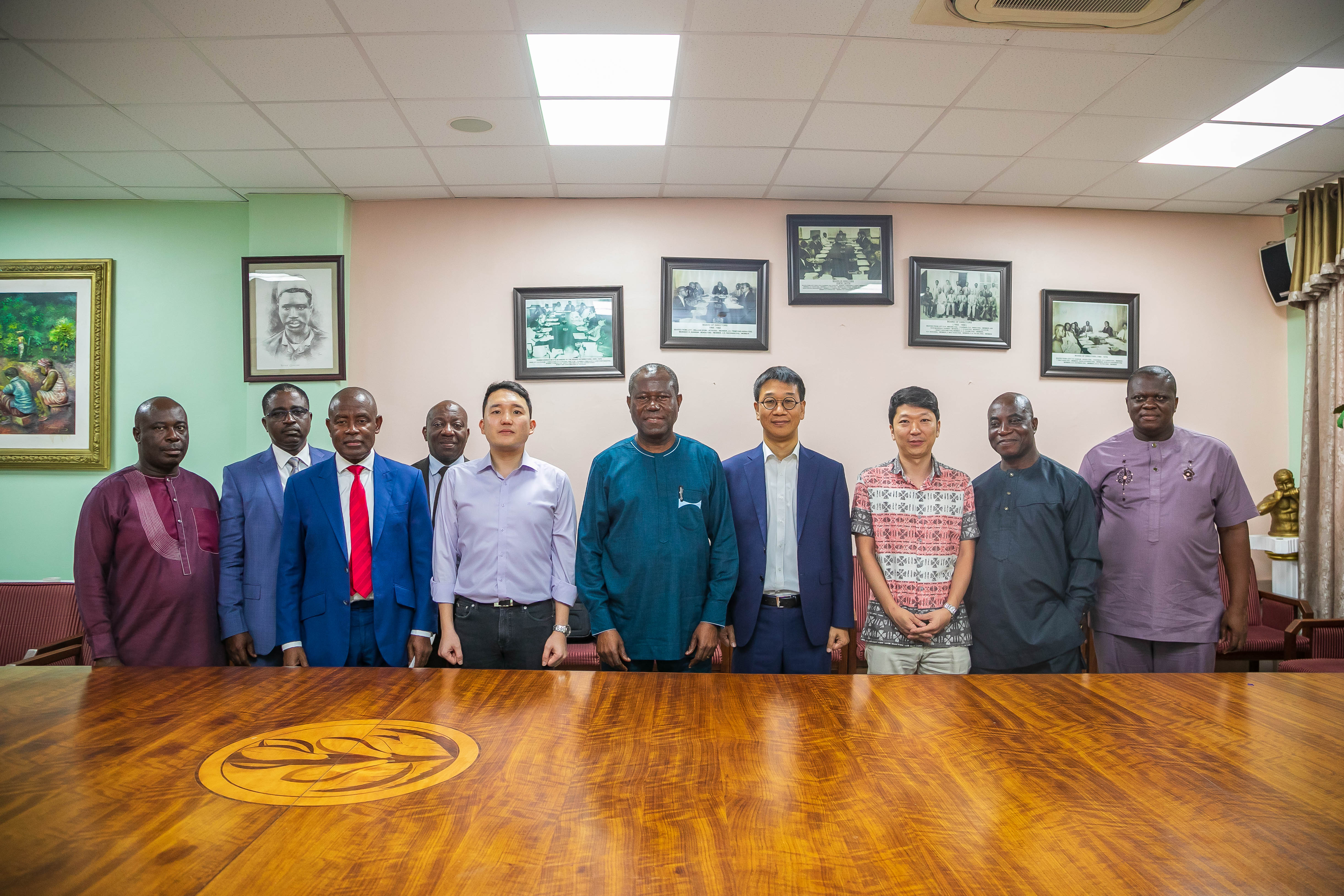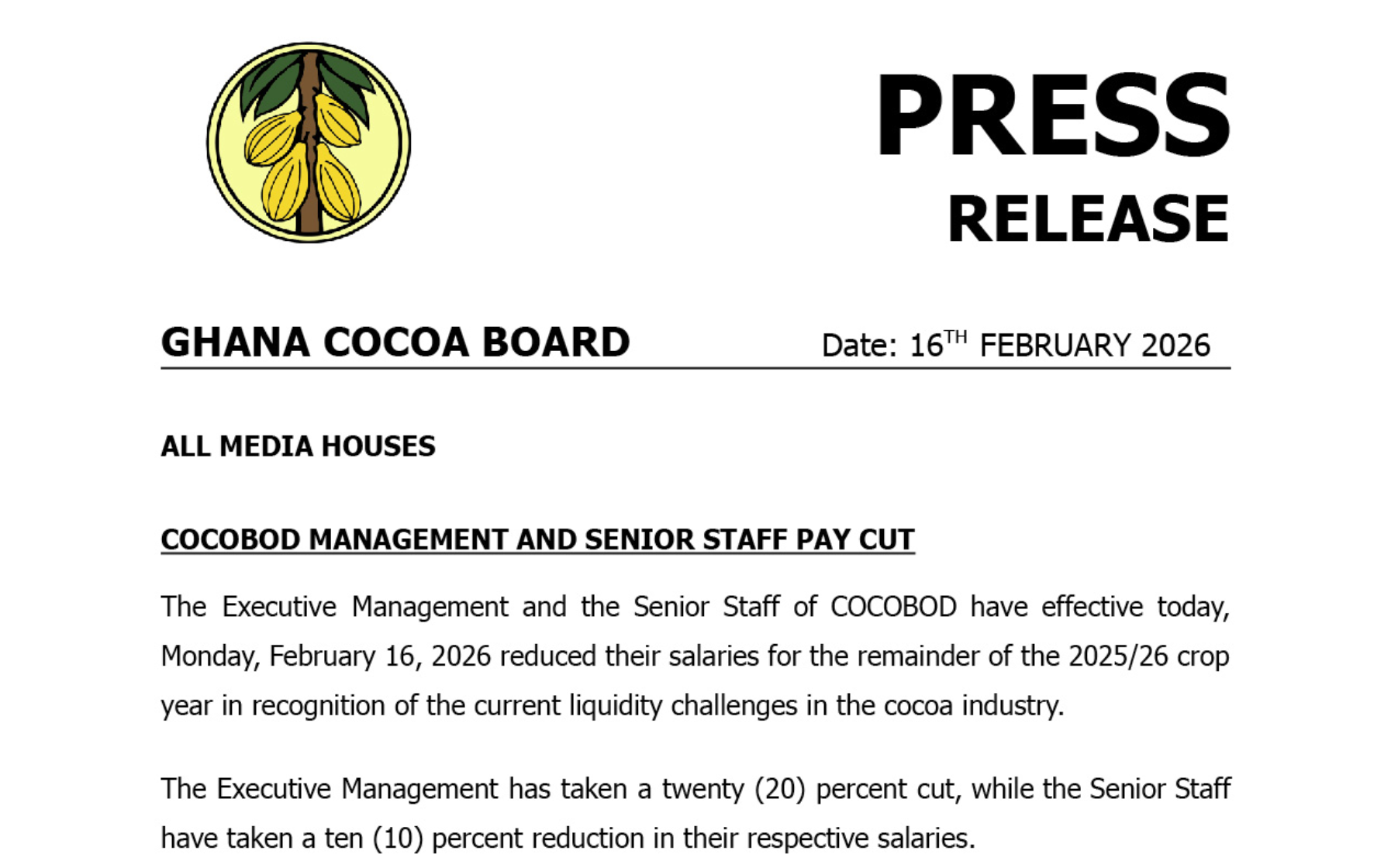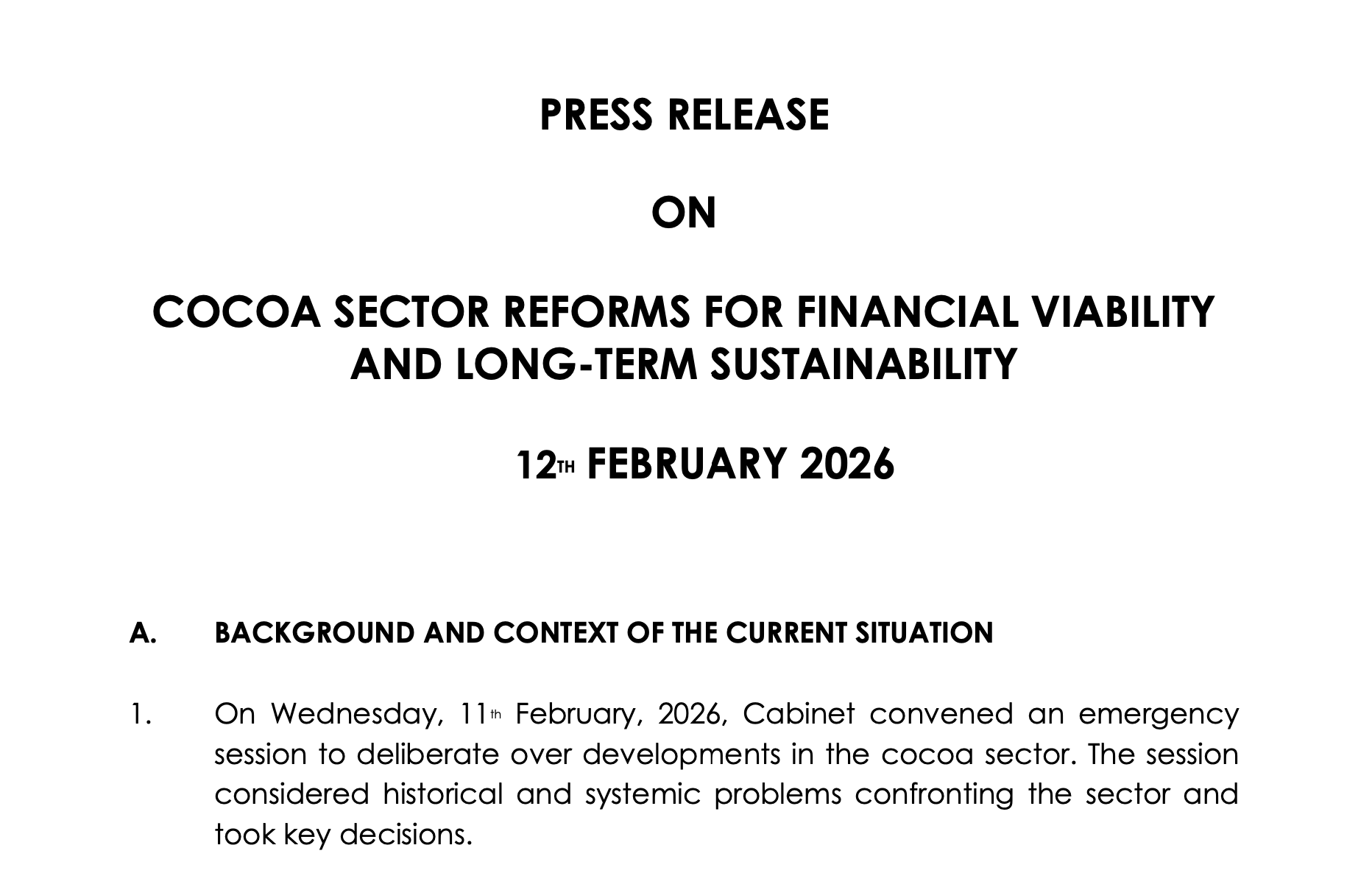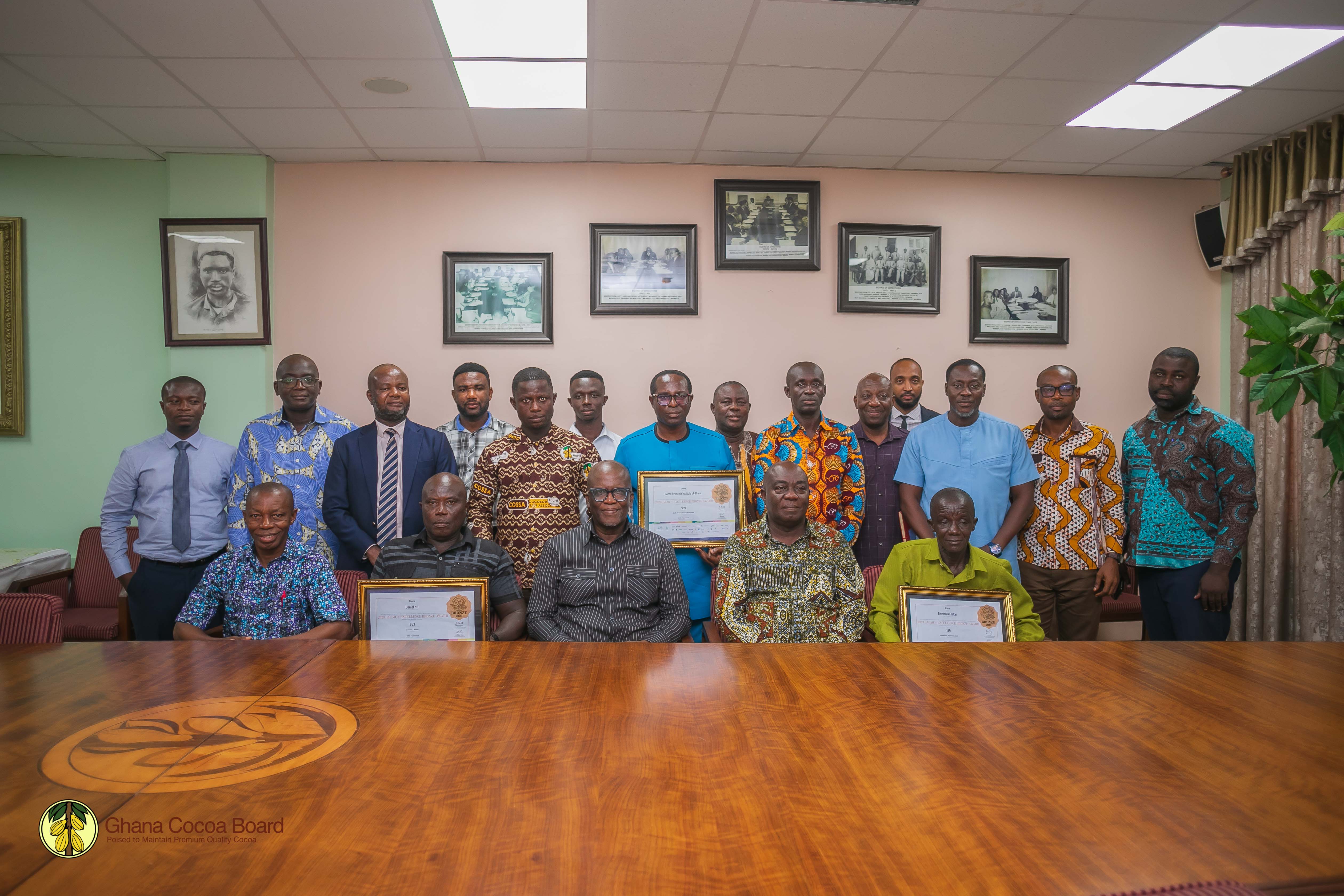COCOBOD CE HIGHLIGHTS COCOA'S ROLE IN CLIMATE CHANGE MITIGATION

Date: 25th September 2024
The Chief Executive of Ghana Cocoa Board (COCOBOD), Hon. Boahen Aidoo, has underscored the vital role cocoa farming plays in addressing climate change.
Speaking at a meeting with a Korean delegation at Cocoa House in Accra, Hon. Aidoo detailed how climate change, particularly the recent El Niño phenomenon, has severely impacted Ghana’s cocoa production during the 2023/2024 Crop Season.
“Ghana’s cocoa production for this past season dropped significantly due to the El Niño effect, as well as other human activities such as illegal mining (galamsey) and smuggling,” he noted.
In response to these challenges, Hon. Aidoo outlined the measures COCOBOD has introduced to combat climate-related impacts and revitalize cocoa farming. He emphasized the importance of intercropping practices that not only enhance biodiversity but also improve carbon sequestration, which is crucial for climate change mitigation.
He added that the annual syndicated loan and recent increases in cocoa prices would provide essential financial relief for cocoa farmers.
“It is crucial to intensify vertical productivity to recover cocoa production to 650,000 metric tonnes. Additionally, the increase in farm gate prices will make cocoa farming more attractive, and the syndicated loan will ensure that we can purchase produce directly from farmers,” he explained.
Looking ahead, Hon. Aidoo expressed optimism about the 2024/2025 crop season, citing favourable weather conditions due to the anticipated La Niña event, the opposite of El Niño.
He also highlighted ongoing efforts to restore diseased farms and promote good agronomic practices (GAP), such as pruning and hand-pollination, as part of COCOBOD’s Productivity Enhancement Programme (PEPs).
“The upcoming season will be a better one because we expect favourable weather, and with the restoration of many of our farms, along with good agronomic practices and the Productivity Enhancement Programmes (PEPs), we will see a significant boost in production,” Hon. Aidoo stated.
Furthermore, he emphasized cocoa’s broader environmental benefits, including its role in reducing carbon emissions, preventing soil erosion, and maintaining soil moisture levels. He encouraged farmers to adopt agroforestry practices, which integrate trees into cocoa farms, to further enhance these environmental gains.
With these strategies in place, COCOBOD is committed to ensuring that cocoa farming remains a key driver of sustainability and growth in Ghana’s agricultural sector, helping to combat climate change while securing the livelihoods of farmers.
Other News / Articles you might be interested in.

COCOBOD MANAGEMENT AND SENIOR STAFF PAY CUT
The Executive Management and the Senior Staff of COCOBOD have, effective today, Monday, ...
Read More
PRESS RELEASE ON COCOA SECTOR REFORMS FOR FINANCIAL VIABILITY AND LONG-TERM SUSTAINABILITY
A. BACKGROUND AND CONTEXT OF THE CURRENT SITUATION 1. On Wednesday, 11th February, 2026, ...
Read More
COCOBOD HONOURS GHANAIAN COCOA FARMERS FOR EXCELLENCE AT INTERNATIONAL COCOA AWARDS
Management of Ghana Cocoa Board (COCOBOD) has honoured the winners of the 2023 International ...
Read More